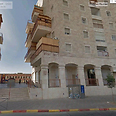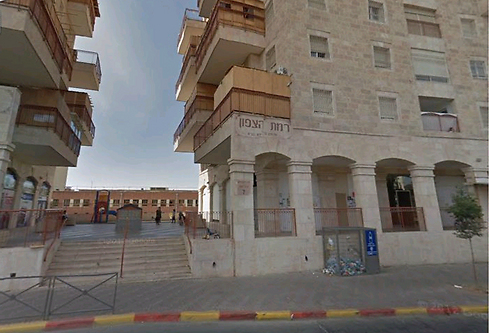
Discrimination in Jerusalem: Women barred from municipal library
Women prohibited fro entering library in building that also houses synagogue, city's comptroller reveals; charity boxes distributed illegal throughout capital, report says
A report authored by the Jerusalem Municipality comptroller reveals that women are barred from entering a local religious library located inside a building which also houses a synagogue.
The building at 60 Yirmiyahu Street is owned by the city and has only one entrance. During the day the synagogue serves as a kollel – a yeshiva for married men.
"In light of the use of the synagogue, women are not allowed to enter the compound and effectively cannot visit the library," said the report, released Wednesday. The women's bathroom at the building was converted into a kitchenette which serves the kollel's students.
Related stories:
- Gender segregation on rise in Israel
- Deal: No segregation in Mea Shearim
'Stop sex segregation on haredi street'
The comptroller, Malka Dror, learned of the discrimination from citizens who filed complaints. Her report revealed that while all religious libraries in Israel have separate opening hours for men and women, the library on Yirmiyahu Street prohibits the entry of women altogether and does not contain any reading material for women or teenage girls.
The report stated that operating a men-only municipal library is illegal and constitutes a "violation of equality between the sexes and may damage the municipality's image."
The comptroller also criticized the decision to house a religious institution and a library that is meant to serve the general public in the same building.
In response to the report, Mayor Nir Barkat's office said the municipality "will not lend a hand to the violation of equality between the sexes. We will continue to fight discrimination wherever it exists."
The report also addressed the municipality's supervision over the distribution of charity boxes throughout the capital. In early 2011 it was agreed that 224 charity boxes would be distributed in various ultra-Orthodox neighborhoods. The charity boxes belong to six non-profit organizations which presented all the necessary permits.

The building on Yirmiyahu Street (Photo: Goggle Maps)
At the same time, the municipality also introduced a procedure for the confiscation of charity boxes that were placed in neighborhoods without a permit. Those boxes were sent to a warehouse, where they were supposed to be listed and photographed. According to the agreed upon procedure, city inspectors are authorized to open the boxes six months after they have been confiscated.
But during a tour of the warehouse where the confiscated boxes are stored, inspectors from the comptroller's office found that not all of the 140 charity boxes stored there were marked with serial numbers. Some had been stored at the warehouse for seven years. In addition to the small charity boxes, large ones were found in an open area that is protected only by a fence. "Some of these boxes had money in them, which could have easily been stolen," according to the report. "Other boxes were stored in this open area for two years. It is feared that they were emptied out without authorization."
During a tour of the Mea Shearim, Mekor Baruch and Buchari neighborhoods, the comptroller's inspectors found 52 small charity boxes that were distributed illegally.
The comptroller's report said the confiscation of charity boxes was carried out in violation of the principle of separation of authorities, which determines that any monetary procedure will be carried out with the separation of roles between the element that is documenting the procedure and the element that is performing the task, in order to avoid the risk of embezzlement.
- Receive Ynetnews updates directly to your desktop










